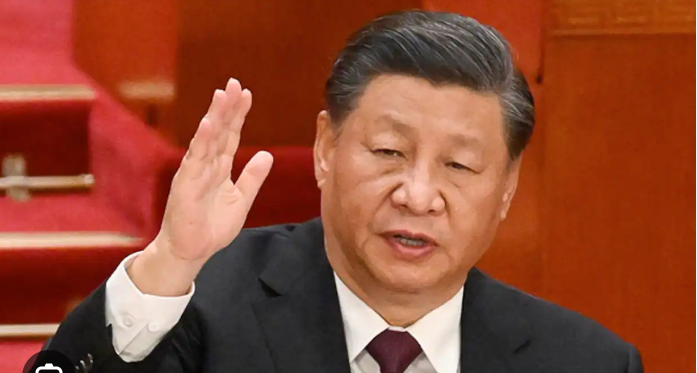The escalating trade war between the United States and China has cast a long shadow over the global economy, prompting anxious discussions within China’s highest political echelons. Chinese leaders, convening under the aegis of the Politburo, acknowledged the growing impact of external shocks, a thinly veiled reference to the punitive tariffs imposed by the Trump administration. The Politburo emphasized the importance of multilateralism and implicitly criticized the US’s “unilateral bullying” approach to trade, signaling Beijing’s resolve to weather the storm and defend its economic interests. The trade conflict exacerbates existing domestic challenges, including a struggling property sector and subdued consumer spending, adding urgency to China’s quest for sustainable economic growth.
China’s economic policymakers face a complex balancing act. While acknowledging the external pressures stemming from the trade war, the Politburo meeting highlighted the need to bolster domestic demand as a key driver of economic growth. The emphasis on stimulating consumption, increasing household incomes, and fostering the growth of the service sector underscores a strategic shift towards greater reliance on internal markets. This approach aligns with the view of many economists who believe that robust domestic consumption is crucial for China’s long-term economic health and resilience to external shocks. The leadership also signaled its willingness to implement targeted rate cuts to support economic activity, demonstrating a proactive stance while avoiding a large-scale stimulus package.
The ongoing trade war, characterized by tit-for-tat tariff hikes, has disrupted global supply chains and heightened uncertainty in international markets. The Trump administration’s imposition of substantial tariffs on a wide range of Chinese goods has elicited retaliatory measures from Beijing, creating a cycle of escalating trade barriers. While China achieved record exports in the previous year, the current trade environment poses a significant threat to its export-oriented growth model. The Politburo’s focus on domestic consumption can be interpreted as a preemptive measure to mitigate the negative impact of trade disruptions and ensure sustained economic momentum.
The Politburo’s cautious approach to economic stimulus suggests a deliberate strategy of assessing the full impact of the trade war before committing to large-scale interventions. While acknowledging the need for supportive measures, the leadership seems intent on avoiding premature or excessive stimulus spending. This measured response reflects an awareness of the potential risks associated with excessive stimulus, including inflation and debt accumulation. The government’s emphasis on targeted interventions, such as rate cuts and measures to boost consumption, indicates a preference for a more calibrated and sustainable approach. This approach aligns with China’s long-term economic goals and its commitment to maintaining financial stability.
Amidst the escalating trade tensions, conflicting reports regarding potential negotiations have added to the complexity of the situation. While China’s commerce ministry denied the existence of ongoing trade talks with the US, President Trump claimed that meetings were indeed taking place. This discrepancy underscores the delicate nature of the relationship and the challenges of achieving a resolution. Further complicating the picture are reports that China is considering exempting certain US semiconductor products from recently imposed tariffs. This potential concession could signal a willingness to find common ground and de-escalate the trade conflict, although its ultimate significance remains to be seen.
The trade war between the US and China represents a significant challenge to the global economic order. Its implications extend far beyond the two countries involved, affecting global supply chains, financial markets, and business confidence. China’s response to the trade war, characterized by a focus on domestic demand and a cautious approach to stimulus, reflects a long-term strategic vision. While acknowledging the challenges posed by the trade conflict, China’s leadership appears determined to navigate the turbulent waters and maintain a steady course towards sustainable economic growth. The future trajectory of the trade war and its ultimate impact on the global economy remain uncertain, but China’s proactive and measured approach positions it to weather the storm and emerge as a resilient economic power.














